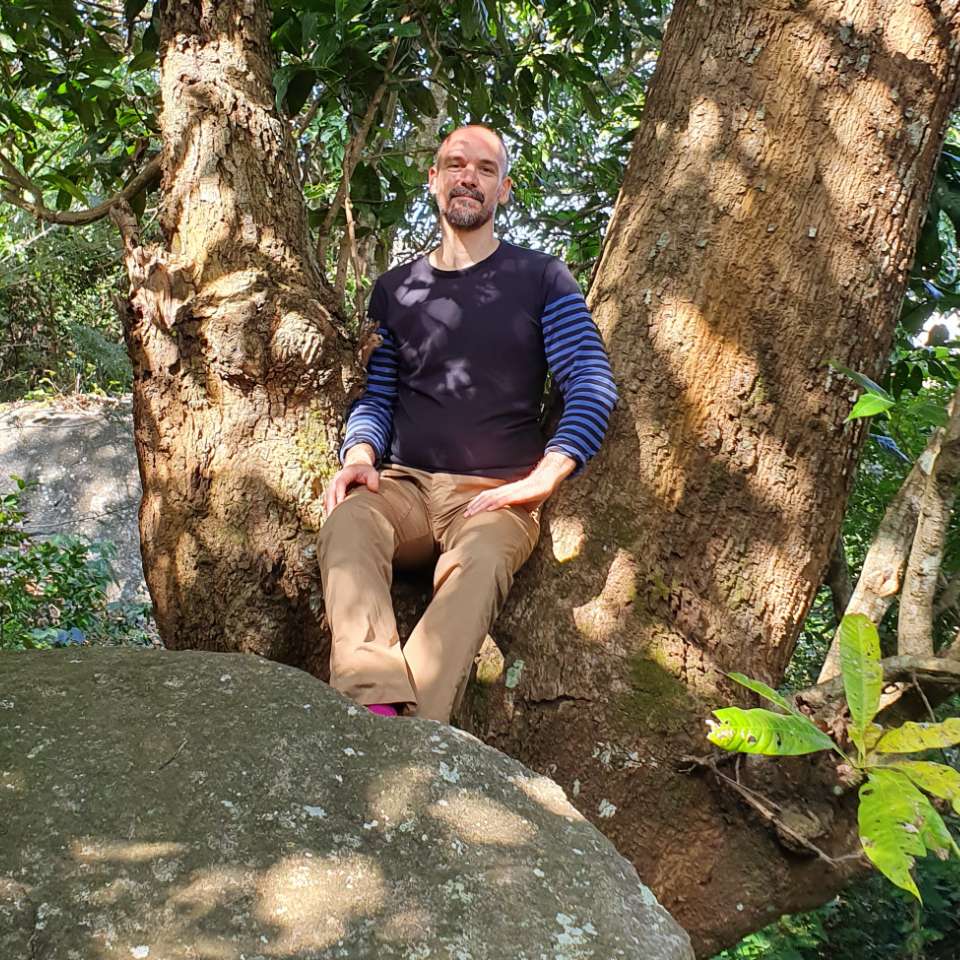-
Coffees by origin
-
Coffee machines
Art of living
Our promotions
-
-
- Login
He recognizes himself well in the incipit of Aurelian, the novel by Aragon: "The first time Aurelian saw Berenice, he found her frankly ugly". He had only fermenting aromas in his mouth, burnt, rubbery, volatile alcohol like in wine, effluvia reminiscent of hydrocarbons. It must be said that the man has a delicate palate. Heir to a line of cutlers, he has been a gastronomic critic, a tasting trainer and an agent for winegrowers. For him, eating is an act of civilization. In another life, he also taught medieval history and general history, but in Italian.
A specialist in the Middle Ages, he sees the world as a continuum, the past nourishing the present, the present bearing the seeds of the future. A bookworm, he approached coffee with the same thirst to exhaust the subject, hoping above all never to
achieve it. But first he had to overcome his disgust. This was done by the grace of a cup filled with a plantation coffee from Guatemala, a Pulcal, Caturra Arabica from the Fraijanes region, a high altitude volcanic area. A new world
opened up to him, which he has not stopped exploring since.
He recognizes himself well in the incipit of Aurelian, the novel by Aragon: "The first time Aurelian saw Berenice, he found her frankly ugly". He had only fermenting aromas in his mouth, burnt, rubbery, volatile alcohol like in wine, effluvia reminiscent of hydrocarbons. It must be said that the man has a delicate palate. Heir to a line of cutlers, he has been a gastronomic critic, a tasting trainer and an agent for winegrowers. For him, eating is an act of civilization. In another life, he also taught medieval history and general history, but in Italian.
A specialist in the Middle Ages, he sees the world as a continuum, the past nourishing the present, the present bearing the seeds of the future. A bookworm, he approached coffee with the same thirst to exhaust the subject, hoping above all never to
achieve it. But first he had to overcome his disgust. This was done by the grace of a cup filled with a plantation coffee from Guatemala, a Pulcal, Caturra Arabica from the Fraijanes region, a high altitude volcanic area. A new world
opened up to him, which he has not stopped exploring since.
When L'Arbre à Café was founded in Paris in 2009, it was part of a movement that began on the West Coast of the United States in the 1990s and in Australia and Scandinavia at the dawn of the new millennium. This movement was slow to find its way to France, and was strongly influenced by Anglo-Saxon identities.
L'Arbre à Café was a pioneer in France because the brand was dedicated solely to specialty coffees, the cream of the crop.
Better still, it is a pioneer in the world because, inspired by the great wines of Burgundy and Alsace, it only works with single-variety, single-cell, single-fermentation coffees, purchased directly from producers and cultivated mainly in biodynamic methods.
But above all, far from sticking to a global fashion that magnifies acidity, milky taste and aromatic intensity, L'Arbre à Café develops a French taste, a New French Art of Coffee based on balance and complexity, just like great wines and great dishes. The company roasts its own coffees, using the latest technical advances and with the most advanced craftsmanship. The goal is to reveal the organoleptic singularities of each of the coffees, and not to be carried away by a current.
When L'Arbre à Café was founded in Paris in 2009, it was part of a movement that began on the West Coast of the United States in the 1990s and in Australia and Scandinavia at the dawn of the new millennium. This movement was slow to find its way to France, and was strongly influenced by Anglo-Saxon identities.
L'Arbre à Café was a pioneer in France because the brand was dedicated solely to specialty coffees, the cream of the crop.
Better still, it is a pioneer in the world because, inspired by the great wines of Burgundy and Alsace, it only works with single-variety, single-cell, single-fermentation coffees, purchased directly from producers and cultivated mainly in biodynamic methods.
But above all, far from sticking to a global fashion that magnifies acidity, milky taste and aromatic intensity, L'Arbre à Café develops a French taste, a New French Art of Coffee based on balance and complexity, just like great wines and great dishes. The company roasts its own coffees, using the latest technical advances and with the most advanced craftsmanship. The goal is to reveal the organoleptic singularities of each of the coffees, and not to be carried away by a current.

